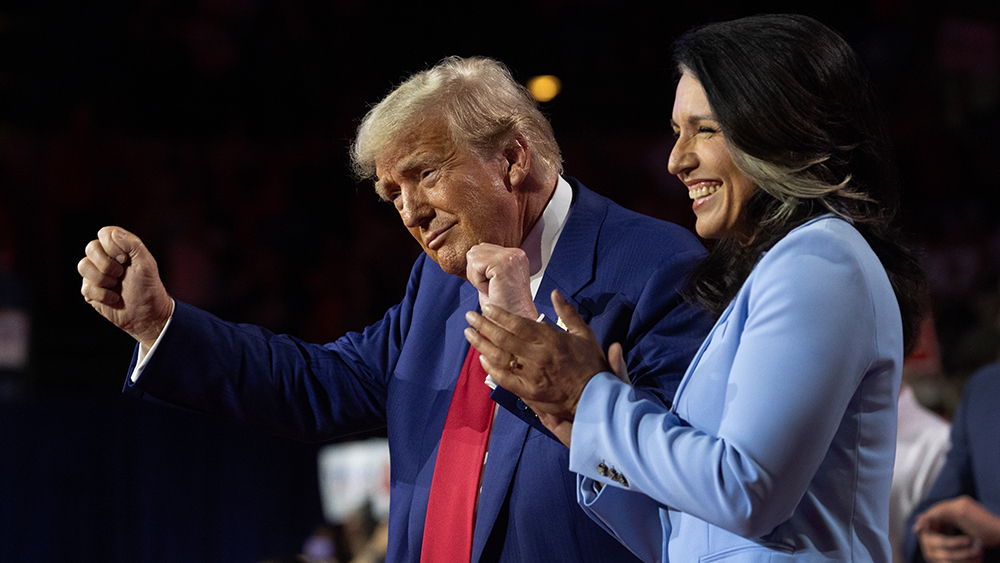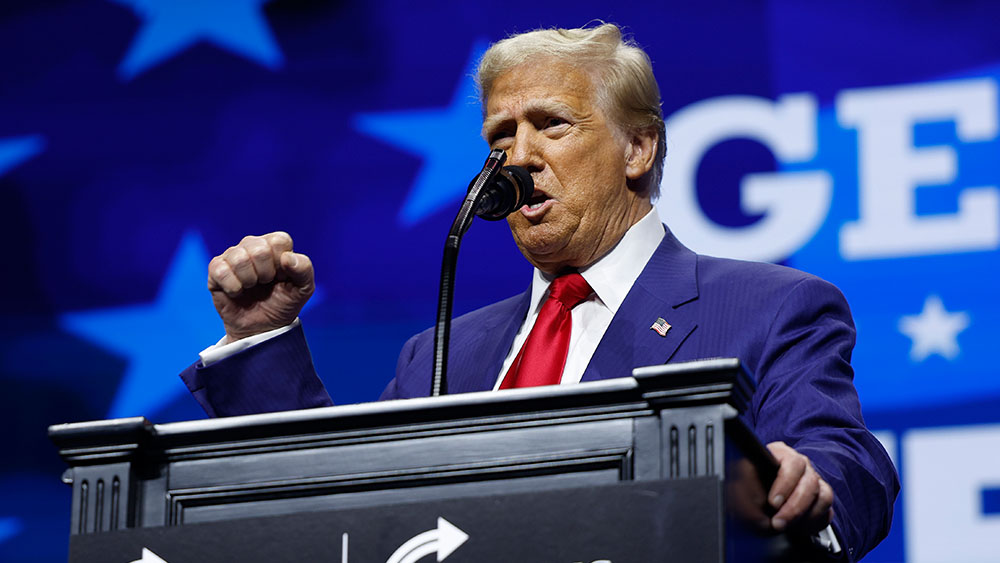 Parler
Parler Gab
Gab
- On Feb. 14, Judge Ana Reyes of the District of Columbia rejected a request for a temporary restraining order (TRO) to reinstate eight inspectors general (IGs) fired by the Trump administration.
- Judge Reyes' decision reflects a judicial stance that prioritizes executive authority and the separation of powers, emphasizing the impracticality of immediate judicial intervention in executive personnel decisions.
- The judge criticized the plaintiffs' legal strategy, citing the lack of urgency and procedural impropriety, and ordered an expedited briefing schedule for a preliminary injunction instead.
- The case is part of a longstanding debate over presidential power and the balance of authority between the executive and legislative branches, with critics concerned about the impact of politically motivated IG dismissals on independent oversight.
- The ruling represents a significant victory for the Trump administration and reflects a judicial system supportive of executive prerogatives, potentially shaping future challenges to executive decisions through the courts.
The case at hand
The eight inspectors general, who oversee critical federal agencies including the Defense, Veterans Affairs, Health and Human Services, State, Education, Agriculture, Labor departments, and the Small Business Administration, were dismissed on January 24 without the required 30-day notice to Congress or a substantial rationale for their termination. The abrupt firings prompted a legal challenge, with their attorney, Seth Waxman, filing an emergency suit on February 12, seeking immediate reinstatement and backpay. During a virtual hearing that lasted less than 13 minutes, Judge Reyes expressed significant frustration with the timing and nature of the request. "My court’s staff is already overwhelmed with scores of other temporary restraining order requests," she stated, emphasizing the impracticality of granting such an urgent order. Waxman confirmed that the IGs had been able to retrieve their personal belongings, and that the firings occurred without cause, but he argued that their reputational damage justified immediate relief. Judge Reyes, however, was not swayed by this argument. She pointed out that there was nothing to prevent President Trump from issuing a 30-day termination notice to Congress immediately after a TRO was granted, complete with a written rationale. "A 30-day return to the office with a written reason why they were unfit for their jobs could actually cause even more reputational harm than what was already given," she noted. The judge also criticized Waxman for citing a similar case involving a government employee operating independently of the White House, emphasizing that the IGs worked for agencies under presidential direction.Judicial prudence and executive authority
Judge Reyes’ decision reflects a broader judicial philosophy that prioritizes the separation of powers and the preservation of executive authority. "The plaintiffs face no irreparable harm beyond what they have already experienced," she ruled, dismissing the emergency nature of the request. The defense counsel representing the various departments remained silent, choosing not to weigh in on the matter, further indicating a lack of urgency or controversy from the executive branch. The judge’s decision to force the plaintiffs to drop the TRO request and opt for an expedited briefing schedule for a preliminary injunction highlights her commitment to a more measured judicial process. "This matter could have been handled with a five-minute call with the Department of Justice," she chastised Waxman, emphasizing the importance of procedural propriety and judicial efficiency.The ongoing battle over presidential power
The case of the fired inspectors general is the latest chapter in a long-standing debate over the balance of power between the executive and legislative branches of government. The Inspectors General Act of 1978, designed to provide independent oversight of federal agencies, has been a source of tension, especially when presidents seek to remove IGs for reasons perceived as politically motivated. Historically, presidents have used their authority to fire IGs, often citing the need for a fresh perspective or improved agency performance. However, critics argue that such actions can undermine the independence and effectiveness of these watchdogs, potentially stifling investigations into presidential allies or policies. The Trump administration's firings have been particularly contentious, with many viewing them as a direct challenge to the principle of independent oversight. Judge Reyes’ decision aligns with a conservative judicial philosophy that defers to the executive branch on matters of personnel and agency direction. This stance is consistent with the broader conservative movement, which has long championed a strong, unencumbered executive capable of implementing policy without undue interference from other branches of government.Conclusion: A victory for executive prerogatives
The ruling by Judge Ana Reyes is a significant victory for the Trump administration and a clear signal that the judiciary is not inclined to micromanage executive decisions, especially in the context of personnel management. The rapid dismissal of the TRO request and the judge’s pointed critique of the plaintiffs’ legal strategy underscore a judicial system that values efficiency and respect for the constitutional balance of power. As the case moves forward, it will be closely watched by legal scholars, policymakers and the public. The broader implications of this decision could shape the future of inspector general appointments and the extent to which executive authority can be challenged through the courts. For now, however, the message is clear: the judicial branch remains a guardian of executive prerogatives, ensuring that the wheels of government can turn without unnecessary obstruction. Sources include: ZeroHedge.com TheEpochTimes.com WashingtonPost.comTulsi Gabbard warns: Weaponized government poses existential threat to democracy
By Willow Tohi // Share
Government waste exposed: Musk’s accountability push sparks chaos in federal bureaucracy
By Willow Tohi // Share
New Hampshire’s ‘first Black sheriff’ pleads guilty to a laundry list of felonies…
By News Editors // Share
Breakaway civilization initiates counter-coup: Trump and Musk at the helm
By Finn Heartley // Share
Texas legislature adopts “DOGE” model to tackle government efficiency
By Belle Carter // Share
Governments continue to obscure COVID-19 vaccine data amid rising concerns over excess deaths
By patricklewis // Share
Tech giant Microsoft backs EXTINCTION with its support of carbon capture programs
By ramontomeydw // Share
Germany to resume arms exports to Israel despite repeated ceasefire violations
By isabelle // Share










